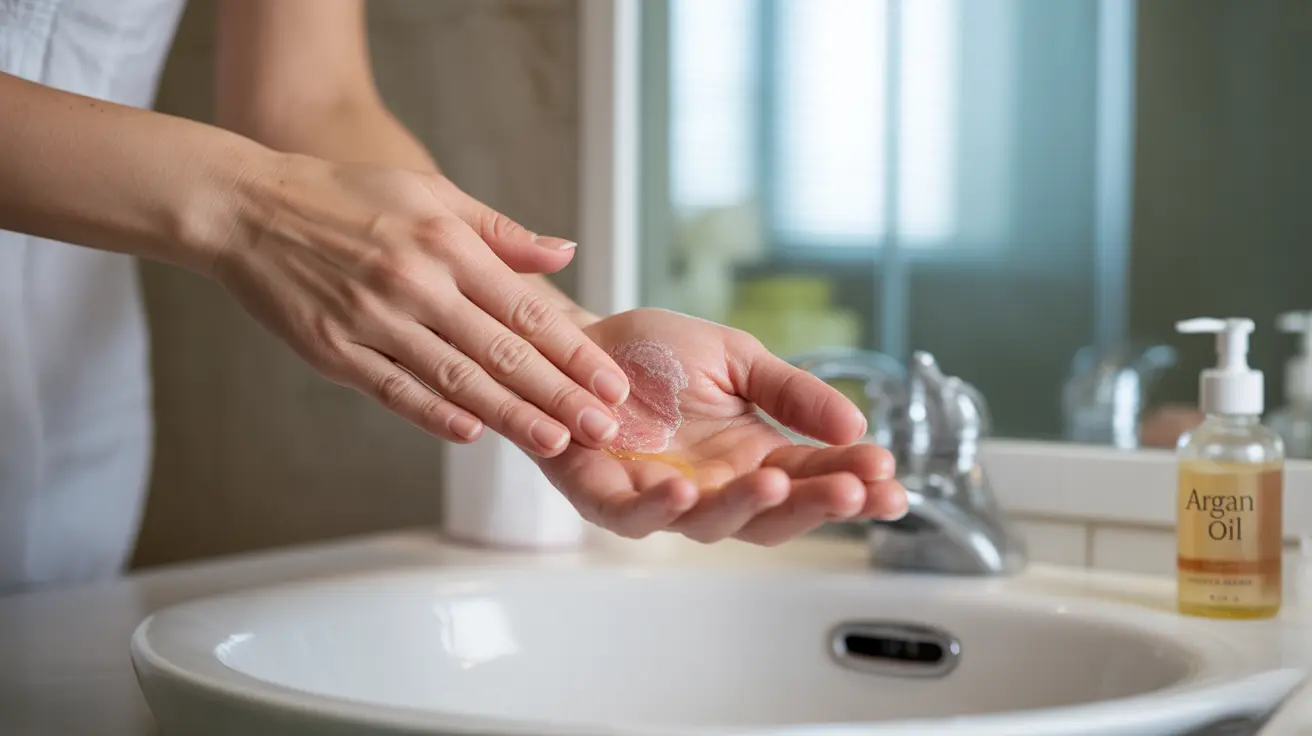Living with psoriasis can be challenging, and finding natural remedies to complement traditional treatments is a common goal for many people managing this chronic skin condition. Argan oil, derived from the kernels of the Moroccan argan tree, has gained attention for its potential benefits in supporting psoriasis management. This comprehensive guide explores how argan oil might help with psoriasis symptoms and the best ways to incorporate it into your skincare routine.
Understanding Argan Oil's Properties
Argan oil contains several beneficial compounds that make it potentially helpful for psoriasis management. These include vitamin E, essential fatty acids, and antioxidants that can help support skin health and reduce inflammation. The oil's natural moisturizing properties may also help address the dryness and scaling commonly associated with psoriasis plaques.
How Argan Oil May Help with Psoriasis
Anti-inflammatory Effects
The high concentration of antioxidants and omega fatty acids in argan oil may help reduce skin inflammation, a key factor in psoriasis flares. These compounds work together to calm irritated skin and potentially decrease redness and scaling.
Moisturizing Benefits
Argan oil's excellent moisturizing properties can help maintain skin hydration, which is crucial for managing psoriasis symptoms. The oil's ability to penetrate the skin barrier helps prevent moisture loss while keeping psoriasis patches more supple and less prone to cracking.
Skin Barrier Support
Regular use of argan oil may help strengthen the skin's natural barrier function, which is often compromised in people with psoriasis. This improved barrier function can help protect against environmental triggers and reduce the frequency of flare-ups.
Proper Application Methods
To maximize the benefits of argan oil for psoriasis, proper application is essential. Here are the recommended steps:
- Clean the affected area gently with a mild, fragrance-free cleanser
- Pat the skin partially dry, leaving it slightly damp
- Apply a few drops of pure argan oil to the affected areas
- Gently massage the oil into the skin using circular motions
- Apply twice daily, preferably after bathing and before bed
Safety Considerations
While argan oil is generally considered safe for most people, it's important to approach its use thoughtfully, especially when dealing with psoriasis. Always perform a patch test before full application and discontinue use if any irritation occurs.
Frequently Asked Questions
What are the benefits of using argan oil for managing psoriasis symptoms?
Argan oil offers multiple benefits for psoriasis management, including anti-inflammatory properties, deep moisturization, and skin barrier support. Its natural compounds can help reduce scaling, soothe irritation, and maintain skin hydration.
How should I apply argan oil to my skin if I have psoriasis?
Apply argan oil to clean, slightly damp skin twice daily. Use a few drops on affected areas, gently massaging in circular motions. For best results, apply after bathing and before bedtime to maximize absorption and healing benefits.
Can argan oil cause any allergic reactions or side effects when used for psoriasis?
While argan oil is generally well-tolerated, some individuals may experience allergic reactions. Always perform a patch test first and watch for any signs of irritation, redness, or itching. If you experience any adverse reactions, discontinue use immediately.
Is argan oil a cure for psoriasis or only a supportive treatment option?
Argan oil is not a cure for psoriasis but rather a supportive treatment option that can help manage symptoms and improve skin comfort. It should be used as part of a comprehensive treatment plan developed with your healthcare provider.
Can argan oil be safely combined with other psoriasis treatments like corticosteroid creams?
In most cases, argan oil can be safely used alongside other psoriasis treatments. However, consult with your healthcare provider before combining treatments, and allow time between applying different products to ensure proper absorption of each.
Remember to always prioritize your prescribed medical treatments and discuss any new additions to your skincare routine with your healthcare provider.




